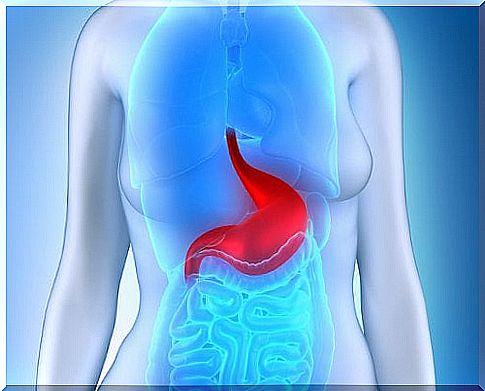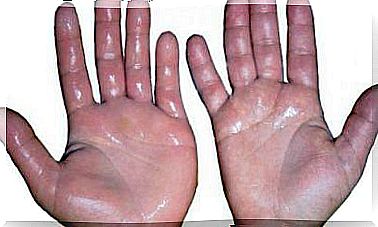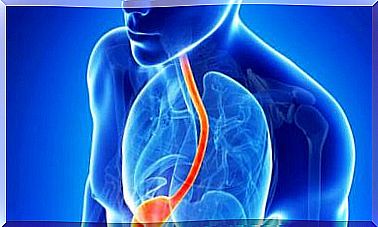Tips For Stomach Care And Disease Prevention

Want to know how to defend yourself against gastric diseases? In this article we will present you some of the most important information on stomach care.
The stomach is located in the middle of the body, a region where many vital functions originate. Its role is to process the food consumed, but it can also influence mood, energy levels and general mental state.
In addition to any aesthetic considerations, having a flat abdomen is a good thing for the health of the whole body. If we keep our stomachs “in shape”, we always feel great. Our general health is closely related to the stomach.
But when the stomach is not working properly, we may experience symptoms such as mood swings, fatigue, dull skin and weight gain. All these problems can occur when the body has difficulty eliminating toxins and waste accumulated in the blood.
Here are some things you can do to take care of your stomach and prevent disease and digestive discomfort.
How can you tell if you have a healthy stomach?

As suggested above, the skin can send us warning signals if we suffer from gastric disorders. When the stomach is sick, our skin may look dull and greasy or stained.
Other symptoms that warn us that our stomach is sick:
- Bad breath (halitosis)
- Dry mouth
- Whitening the tongue
- Stomach pain
- Swelling of the abdomen
- Excess intestinal gas
- Lack of appetite
- Nausea
- Belching
- Constipation
- diarrhea
- indigestion
All of these alarms may indicate that there is a problem with the digestive system. If you experience one (or more) of these symptoms, you need to start taking proper treatment to help your stomach heal.
What factors influence the health of the digestive system?

If, with the help of the list presented above, you come to suspect that your stomach is affected, the next step is to start monitoring your diet.
It often happens that we eat foods that are harmful to health. In general, they are the main cause of gastric problems, including bloating, excessive accumulation of intestinal gas and constipation. Therefore, diet is a basic element in the care of the stomach.
Consumption of dairy products
Among the foods that negatively affect the stomach, the most harmful are whole or unpasteurized milk and cheeses with strong flavors.
Some claim that the main cause is the artificial ingredients in these dairy products, and others believe that, being mammals, we become lactose intolerant after the end of breastfeeding.
Regardless of the origin of the problem, it is certain that most people feel bad after consuming dairy products. The reason is that the human body does not produce the enzymes needed to digest these products.
Dairy products stick to the intestinal mucosa, which causes inflammation in the stomach, but also indigestion or excessive accumulation of intestinal gas, toxins and fat.
Unhealthy eating habits

What does it mean to have unhealthy eating habits? For example, you can’t stand more than an hour without eating, you serve snacks all the time or you always have something sweet or chewing gum on hand.
If you have such habits, your stomach will be overworked and you will never be able to rest. This will cause discomfort, indigestion, poor absorption of nutrients, stomach pain and more.
Giving up harmful habits helps to take care of the stomach and the proper functioning of the body.
Harmful food combinations
For the care of the stomach and the prevention of disease, it is good to try to avoid certain food combinations. Nutritionists claim that this depends on each person.
In general, it is not recommended to eat carbohydrates and proteins in the same meal if we suffer from stomach problems. To digest carbohydrates, the stomach must have an alkaline pH, and proteins need acids to be digested.
If we choose to eat foods rich in these two nutrients at the same time, the stomach will have to make an extra effort to achieve their simultaneous digestion. For this reason, we advise you to eat them separately — for example, protein for lunch and carbohydrates for dinner.
Insufficient water consumption

No doubt you already know that you need to drink at least two liters of water every day. This amount is not arbitrary. If you do not consume enough water, you face a difficult digestion and constipation.
That being said, avoid drinking more than one glass of water during a meal, so as to avoid diluting your stomach’s pH and making your digestion difficult.
Overcooked food
Although there are foods that should not be eaten raw, many people tend to overcook food. This habit is unhealthy because food loses its nutrients and becomes harmful to the stomach.
Try to eat more vegetables (fruits and vegetables), regardless of the season. Juices and smoothies can help you feel full, giving you all the necessary nutrients and relieving you of the effort of cooking.
Excessive consumption of red meat

Red meat does not contain the fiber needed to support peristalsis. Therefore, people who eat too much red meat may suffer from colitis, hemorrhoids, constipation and diverticulosis.
Keep in mind that the stomach has an elongated shape and the intestinal tract is very long. This means that food will spend a long time in the body before being eliminated, which will increase the amount of toxins accumulated in the body.
If you really need to eat red meat, serve a salad rich in vegetables at the same time and try not to eat this food more often twice a week.
Tips for stomach care

- Drink herbal teas such as chamomile, anise and mint.
- Practice exercise more often, so as to stimulate your intestinal transit.
- Consume more fiber and whole grain foods.
- Avoid irritants such as alcohol, coffee and vinegar.
- Chew slowly and enjoy each snack. Do not eat in a hurry and cut the food into pieces.
- Avoid eating when you are angry, nervous or anxious.









